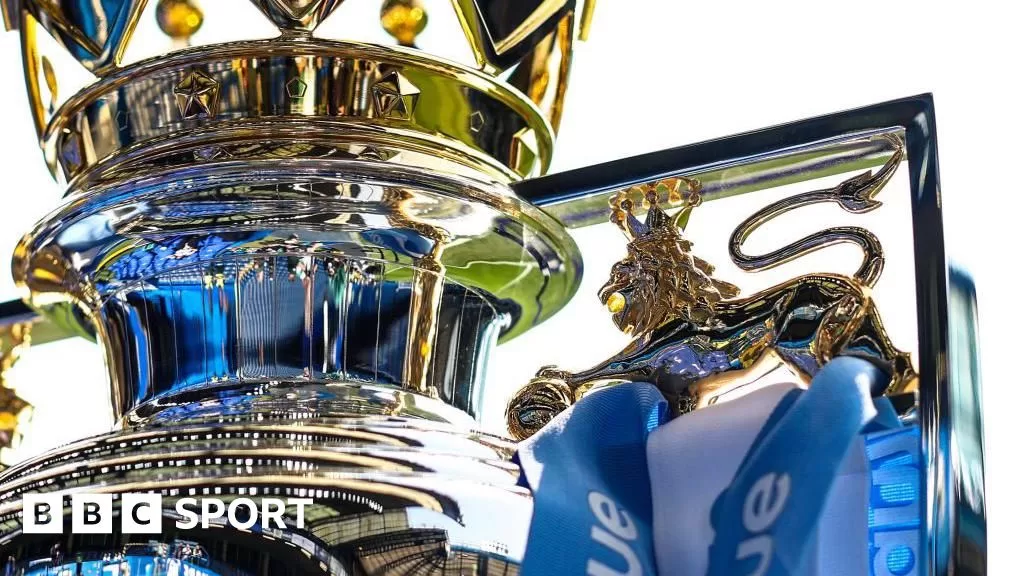In June this year, a Portuguese computer hacker in witness protection called Rui Pinto was reported to have told a conference that he was in possession of “millions of documents” that could be relevant to the City case.
Pinto was well known to the game’s authorities. The 34-year-old was the man behind the Football Leaks website which has exposed confidential football transfer and contract information.
Despite always claiming he was a whistleblower, last year he was handed a four-year suspended sentence by a court in Lisbon after it found him guilty on counts of attempted extortion, illegal access to data, and breach of correspondence. But his threat to release more information – confirmed by his lawyer – was a timely reminder of the continuing role of one of the key figures in this remarkable story.
Back in 2018, the German publication Der Spiegel claimed City had manipulated contracts to get round Uefa rules, and said that its source was a whistleblower they called ‘John’ – the pseudonym Pinto created Football Leaks under.
Der Spiegel had published leaked documents, including emails purportedly sent between top City executives (some of whom remain at the City Football Group), across several seasons following the club’s Abu Dhabi takeover in 2008.
They alleged that these showed the club had inflated sponsorship revenue from state-owned airline Etihad and state-controlled telecoms firm Etisalat by disguising direct investment from its holding company (Mansour’s Abu Dhabi United Group, or ADUG) as sponsorship income by channelling the funds through the companies’ accounts.
This, it was alleged, was a means of meeting ‘financial fair play’ (FFP) rules introduced by Uefa in 2011, and Profit and Sustainability Rules (PSR) brought in by the Premier League in 2012, limiting clubs’ permitted losses.
There then followed further allegations of misreporting financial information centred on documents that claimed to show secret ‘off-the-books’ payments to then-manager Roberto Mancini via consultancy fees from a club in Abu Dhabi, and giving players more money than was officially going through the accounts so that recorded spending was less than it actually was.
City – who have always maintained that ADUG is a private fund rather than an arm of the state – refused to comment on any of Der Spiegel’s revelations, saying the leaked emails were obtained illegally, and that they were an “attempt to damage the club’s reputation”.
City – along with the companies involved – strongly denied breaking any financial rules. But that did not stop both Uefa and the Premier League launching investigations as a result.
City had already been fined millions of pounds by Uefa back in 2014 as part of a settlement after they were found to have breached FFP rules that were meant to make the game more sustainable, but which critics argue protect the historically biggest clubs by restricting investment by rivals, especially those with Middle Eastern backers.
Then, in early 2020, the club was hit with a two-year ban from European club competition after being found to have committed “serious breaches” of the governing body’s regulations. An independent panel of Uefa’s Club Financial Control Body concluded that City had been “overstating its sponsorship revenue in its accounts… submitted to Uefa between 2012 and 2016”, adding that the club “failed to cooperate in the investigation”.
Criticising what it called a “prejudicial” decision following a “flawed and consistently leaked process”, City referred to a “comprehensive body of irrefutable evidence in support of its position”, and appealed.
A few months later they were successful, the Court of Arbitration for Sport (Cas) overturning the ban, saying that it had found “no conclusive evidence that they disguised funding from their owner as sponsorship”, and that most of the alleged breaches of rules were either not established or ‘time-barred’ because they fell outside the five-year statutory limit for prosecution.
Cas revealed that Sheikh Mansour had written a letter to the court insisting that he had “not authorised ADUG to make any payments to Etihad, Etisalat or any of their affiliates in relation to their sponsorship of MCFC”.
However, it also found that City had committed a “severe breach” by failing to co-operate with Uefa’s investigation, with an initial £25m fine reduced to £8m.
For more than two years, the saga seemed to go quiet, but behind the scenes, the Premier League’s investigation had continued. In July 2021 there was a dramatic glimpse of it, when a High Court judge revealed that the Premier League had effectively accused City of delay tactics by failing to agree to hand over documents, ordering the club to do so.
And then, in early 2023, came the most sensational twist in this saga to date, when, with City on their way to the third of four consecutive titles, and their first Champions League triumph, they were hit with that catalogue of charges, relating to every one of the years since the club was bought by Sheikh Mansour.
